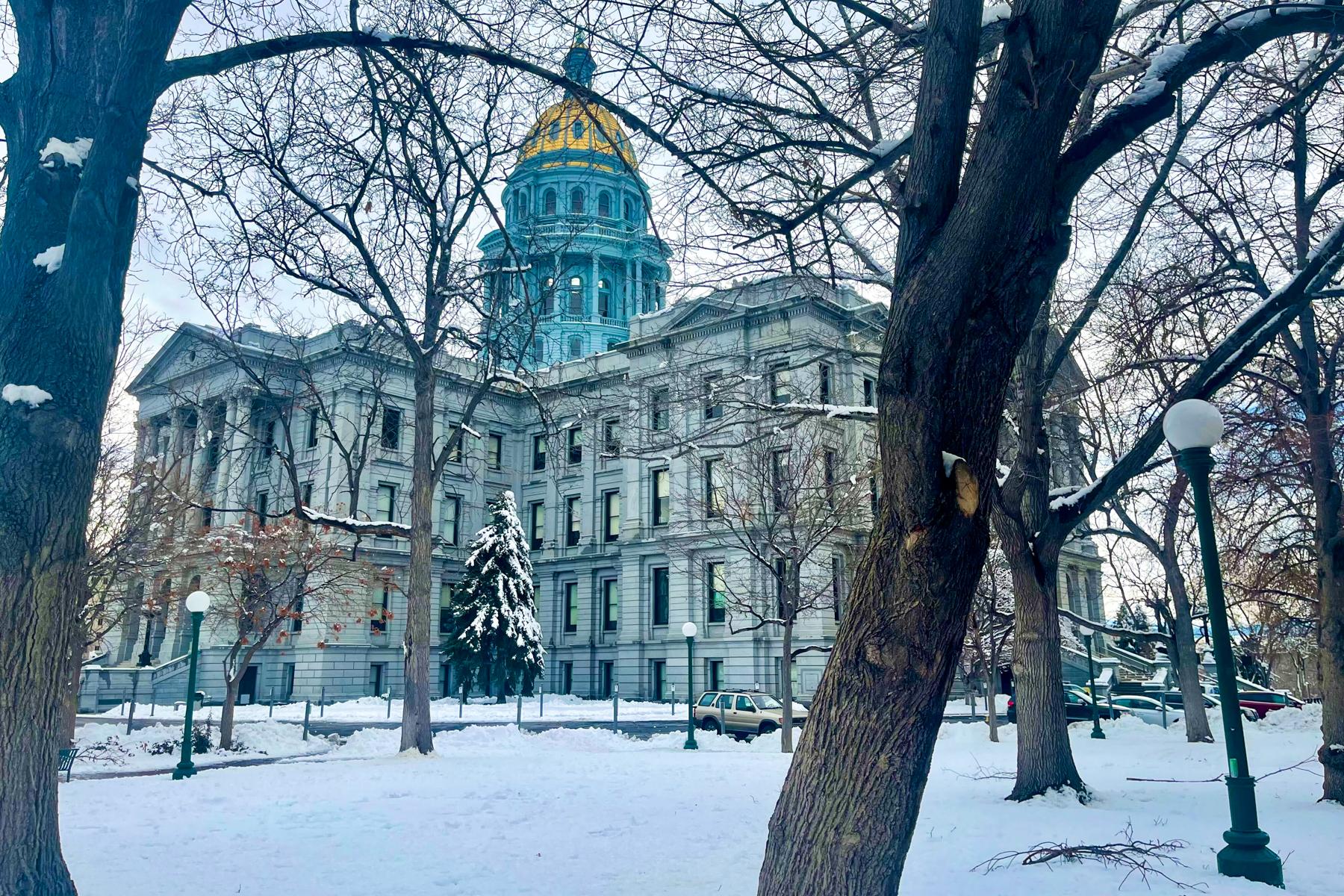
A bill advancing through the Colorado legislature would make it easier for renters to stay in their homes even after their lease expires, and it also would give them other protections against eviction.
Currently, when a lease ends the landlord can decide whether the tenant gets to stay. For example, they could simply refuse to offer a renewal of the current lease — forcing the tenant to leave or be evicted.
That system makes it too easy for landlords to get rid of renters, even if the renters have done nothing wrong, said Rep. Javier Mabrey, a Democratic sponsor of the bill, H.B. 23-1171.
‘’When their leases are up, the landlord refuses to offer a new lease,” Mabrey said at a committee hearing on Wednesday. “We’re trying to prevent that kind of retaliation.”
Under the new proposal, some of the power would shift to the tenant. In many cases, landlords would essentially be required to offer a renewal of the lease in “substantially identical” terms. If they fail to do so, renters could keep paying rent under the terms of the previous lease — and they would be protected from eviction.
The bill passed the House Transportation, Housing & Local Government committee on a party-line vote on Wednesday.
Opponents of the bill, including real-estate interests and smaller landlords, warned it would place an undue burden on landlords. They also said it could lead some to leave the market or raise rents.
The proposal would allow landlords to make a “reasonable” rent increase when they renew the lease. But Mabrey said that was not meant to act as a form of rent control. (He is running another bill on that topic.)
“We’re just trying to prevent retaliatory rent increases,” Mabrey said.
At the hearing, renters and their advocates described cases where landlords refused to renew leases for retaliatory or discriminatory reasons, such as because of a renter’s immigration status or because the renter had asked for repairs. Others talked about being forced out of their homes as the landlord pursued higher rents.
“This goes back to the prevention of homelessness and making sure that we keep people in their homes,” said Rep. Serena Gonzales-Guttierez, a Democratic cosponsor of the bill. Sen. Julie Gonzales also is sponsoring the bill.
Drew Hamrick, a representative of the Colorado Apartment Association, argued that renters already have protections against certain non-renewals. State and federal law already forbid landlords from refusing to renew for a variety of reasons, including as retaliation for making maintenance requests or as an act of discrimination against protected classes, he said.

Mabrey, the sponsor, argued that those laws are hard to enforce because it’s often impossible to prove why a landlord has refused to renew a lease. A broader law will protect more people’s rights, he said.
“It is incredibly hard, incredibly hard to prove discrimination in court … especially for a pro se tenant who doesn’t have an attorney,” he said.
Hamrick said landlords need to be able to end a rental relationship. It’s often the best way to deal with issues where a renter is misbehaving but the landlord can’t prove it, he said.
“Just hold your noses, let it go for another three months, and (don’t) renew the lease,” he said of the current approach, which he favors.
The bill would still allow landlords to evict people who commit “substantial” violations of the lease, including failure to pay or refusing to let a landlord into the property.
In other situations, though, landlords would have to pay to get rid of renters.
For example, if a property owner wanted to demolish, renovate or redevelop their home, they would have to provide “relocation assistance” to the renter, paying the renter the equivalent of at least two months’ rent. The same would apply when owners want to live in the property themselves.
In those situations, the landlord would have to give up to 120 days’ notice, which advocates argued would help tenants find a new place.

One witness, eviction defense attorney Spencer Bailey, described the case of an 87-year-old man he represented, for whom he used a pseudonym.
“He had always paid his rent on time. Mr. Jones had never broken any rules, never had any complaints. He was given only three weeks to move out after living in a place for almost two decades, and he had nowhere to go,” Bailey said, adding that the man had been on a month-to month lease.
The bill “would give people like Mr. Jones substantially more time to find somewhere to live,” Bailey said.
Carla Friedli, who leases out a home she owns in Longmont, said that relocation fees would disrupt her retirement plans.
“I really might be forced to sell this home or change the terms of my lease now to account for two months, plus an additional month of relocation fees,” said Friedli, who described herself as an educator and mental health worker.
Five other states have a similar ‘just cause’ or ‘good cause’ eviction law, including New Jersey, California, New Hampshire, Oregon, Washington, according to the National Low Income Housing Coalition. Though those states’ laws have different details.
The bill’s next step is the House floor, where it would need to win a majority of the chamber. It also would require approval by the Senate before it heads to Gov. Jared Polis.








